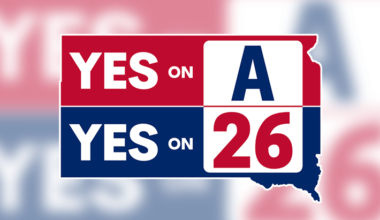New Jersey cannabis retailer Pipe Dreams has implemented a system that converts digital currencies to dollars instantly at checkout, allowing the store’s customers to use cryptocurrency for their marijuana purchases.
The system, from PDX Beam, allows customers to pay by scanning a QR code with their crypto wallet and complete a transaction in 15-30 seconds in an industry that’s notorious for struggling with payment processing and banking.
Pipe Dreams owner Mahmoud Heikal said the store averages 2,000 transactions per month, and he estimates 12 per month are crypto conversion sales.
“It’s just another way for me not to say no to money,” Heikal told MJBizDaily.
And with Pipe Dreams’ location in Asbury Park, Heikal expects to see more customers based on the expected influx of tourists who descend on the area to vacation on the Jersey Shore.
‘Millions of crypto users’
“There are millions of crypto users all over the world – it’s a trillion-dollar industry,” Heikal said.
“People have money that isn’t being utilized. This allows people to get real-world use out of it.”
In 2025, about 28% of American adults, or 65 million people, own cryptocurrencies, according to research firm Security.org.
Heikal plans to incorporate the PDX Beam crypto-payment system into his network of smart vending machines he leases to stores in four states.
“Some franchise partners sell cannabis products, some just sell accessories,” Heikal said.
Payment processing continues to be a challenge for cannabis businesses, which don’t have access to traditional banking services because of the federal prohibition against marijuana under the Controlled Substances Act.
Although marijuana businesses can accept crypto as payment, not many do.
“Most people aren’t doing it because they’re scared,” said cannabis attorney Jean Smith-Gonnell, a partner in the Charlotte, North Carolina, office of the Troutman Pepper Locke law firm.
“It’s a new area people are interested in, but they’re very wary.”
Are crypto risks worth potential rewards?
While some say cryptocurrencies could solve the cannabis industry’s banking and payment problems, the volatility and risk associated with digital assets make it an impractical option for most marijuana retailers.
“I worry that it won’t bring in a bigger customer base and that putting the infrastructure in place could be costly,” Smith-Gonnell said. “The juice isn’t worth the squeeze, to be honest.”
In a 2023 post on her law firm’s website, Smith-Gonnell and co-authors Matthew Orso and Trey Smith outlined the benefits and risks associated with accepting cryptocurrency for marijuana transactions.
According to Smith-Gonnell’s post, the benefits of cryptocurrencies are:
- They are readily available to consumers.
- They make transactions seamless and instant.
- The networks are impenetrable.
Crypto also allows marijuana businesses to bank themselves by maintaining custody of their funds without involving financial intermediaries.
But the risks could outweigh the benefits: Marijuana businesses might face challenges converting large amounts of crypto into fiat currency.
Cryptocurrencies also are taxed as property, so fluctuations in its value might be taxed as capital gains or losses.
“Crypto is still something everyone is watching,” Smith-Gonnell said.
“It’s just going to take time and understanding how it works. There’s just a lack of knowledge.”
Margaret Jackson can be reached at margaret.jackson@mjbizdaily.com.
Subscribe to the MJBiz Factbook
Exclusive industry data and analysis to help you make informed business decisions and avoid costly missteps. All the facts, none of the hype.
What you will get:
- Monthly and quarterly updates, with new data & insights
- Financial forecasts + capital investment trends
- State-by-state guide to regulations, taxes & market opportunities
- Annual survey of cannabis businesses
- Consumer insights
- And more!
Medical Disclaimer:
The information provided in these blog posts is intended for general informational and educational purposes only. It is not a substitute for professional medical advice, diagnosis, or treatment. Always seek the advice of your physician or other qualified healthcare provider with any questions you may have regarding a medical condition. The use of any information provided in these blog posts is solely at your own risk. The authors and the website do not recommend or endorse any specific products, treatments, or procedures mentioned. Reliance on any information in these blog posts is solely at your own discretion.






